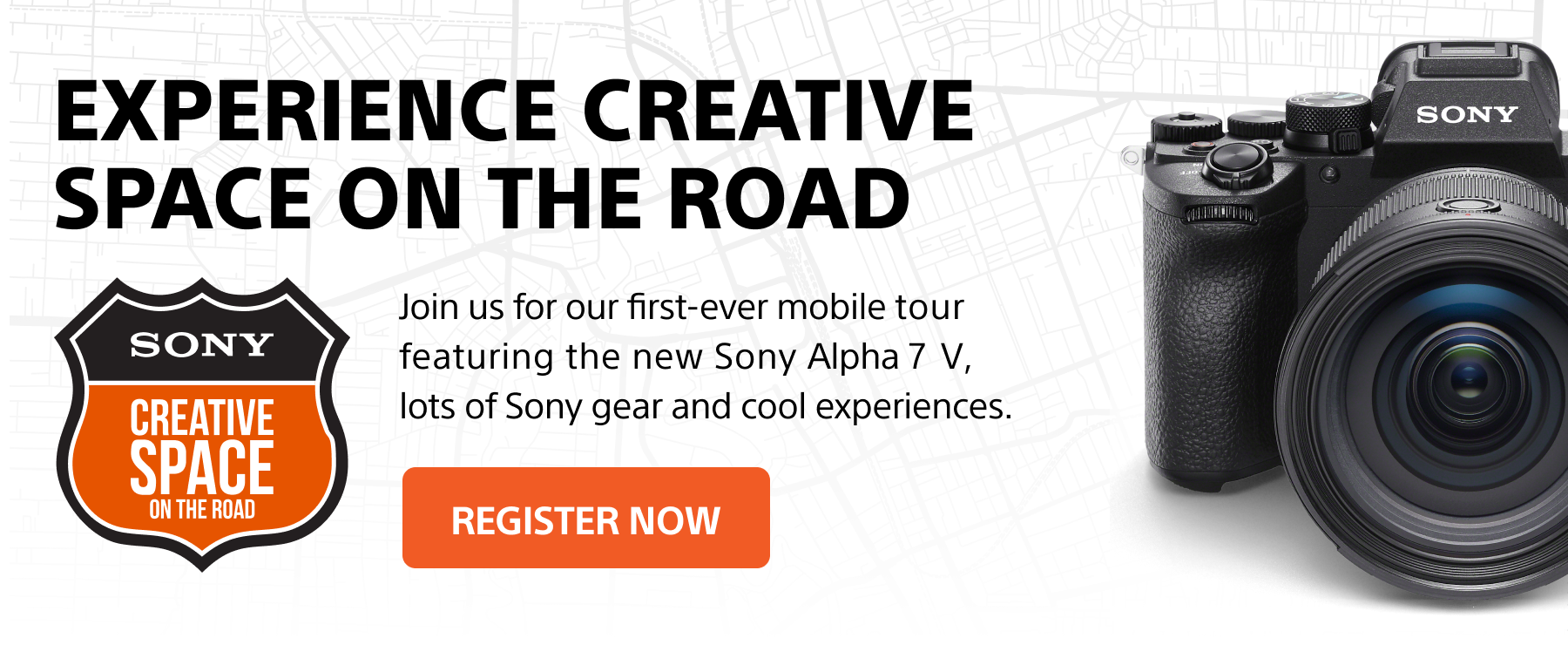Adam Schallau (@adamschallau) is a full-time landscape and travel photographer with a passion for light, land, and rivers of the American West. His work has been on the cover of National Geographic Traveler, Arizona Highways, and the Grand Canyon centennial book, "100 Views." In addition to creating his photographs, Schallau leads workshops and photographic expeditions rafting the Colorado River through the Grand Canyon. He relies on a lightweight full-frame Sony Alpha camera and a tight collection of Sony zoom lenses to capture the iconic landscapes of the Southwest. We caught up with him to find out more about his personal version of the classic zoom trinity (plus one) that he uses.
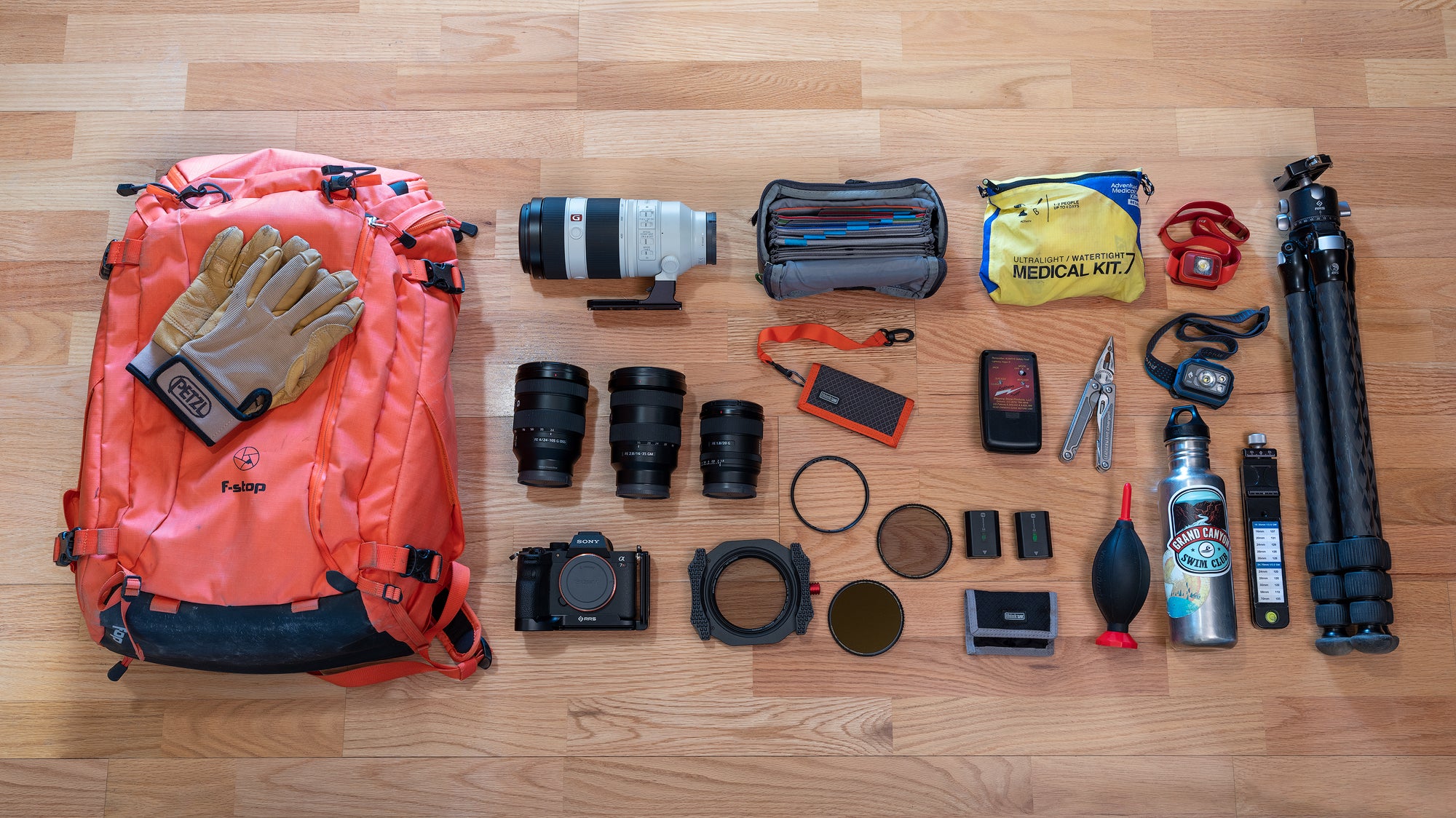
"I'm often in locations where I can't "zoom with my feet," so the key to making the photo is flexibility, which is why I choose to use zooms." -Adam Schallau
Cameras
Sony α7R IV: I've owned every version of the α7R series of cameras, but my current body is the α7R IV. I appreciate this camera for its small size, great build, and compatibility with my favorite Sony G and G-Master lenses. As a landscape photographer that loves to make big prints, I genuinely value the α7R IV's high resolution and outstanding dynamic range. The 61-megapixel sensor allows me to share incredible details in print. I've shot with this camera in monsoon rains and down to temperatures below 0 degrees Fahrenheit during severe winter storms. It has never let me down.
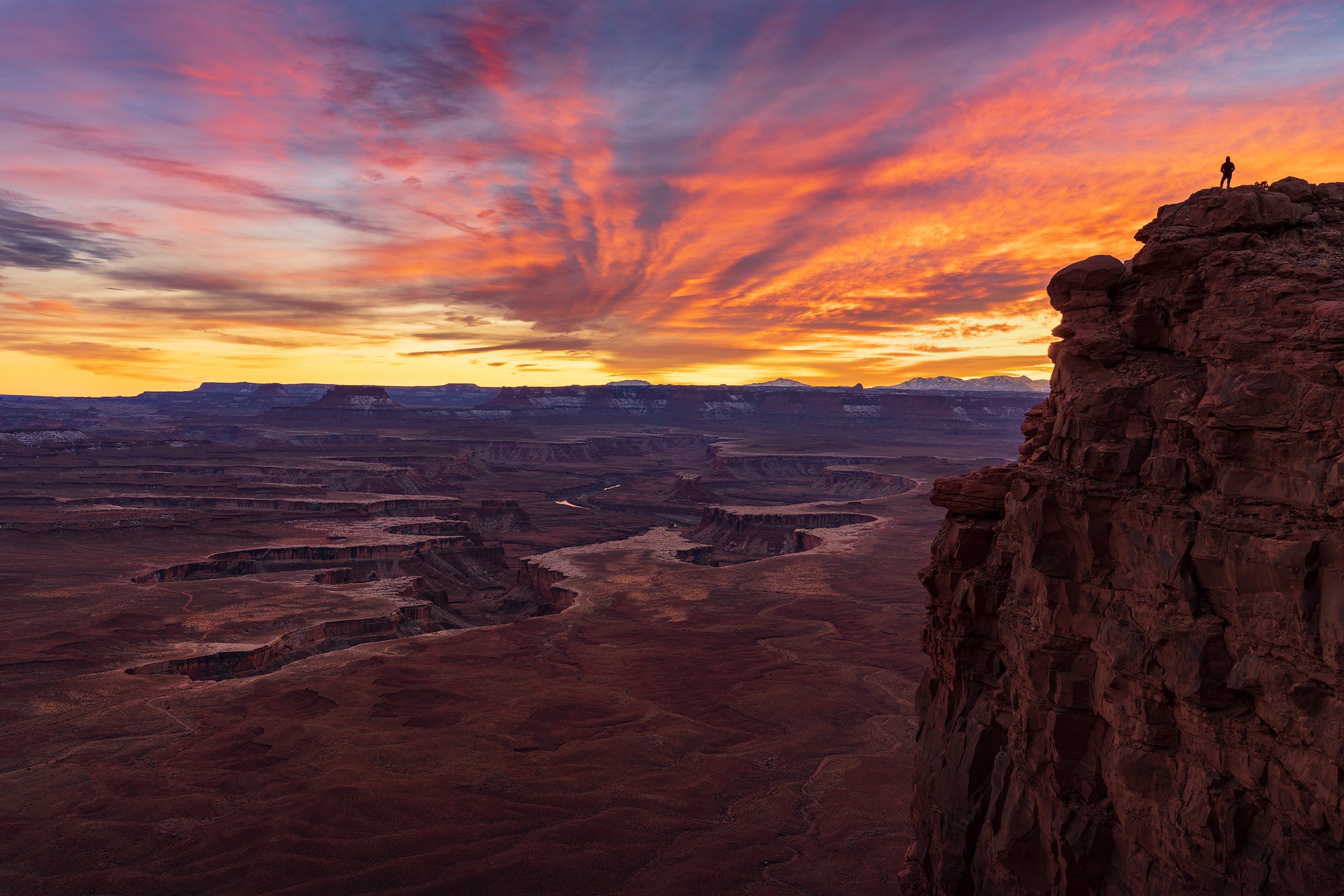
Photo by Adam Schallau. Sony α7R IV. Sony 24-70mm f/2.8 G Master. 1/4-secs., f/8, ISO 100
Lenses
I tend to shoot with a three zoom-lens kit for much of what I do and occasionally augment that with a "walk-around" zoom or a fast wide-angle prime lens. I'm often in locations where I can't "zoom with my feet," so the key to making the photo is flexibility, which is why I choose to use zooms.
Sony 16-35mm f/2.8 G Master: This is the lens I use most often when I'm in a tight space such as a slot canyon or photographing a grand landscape with interesting foreground elements plus a great sky. This lens also serves me well when photographing the night sky thanks to its fast f/2.8 aperture and its excellent image quality across the frame.
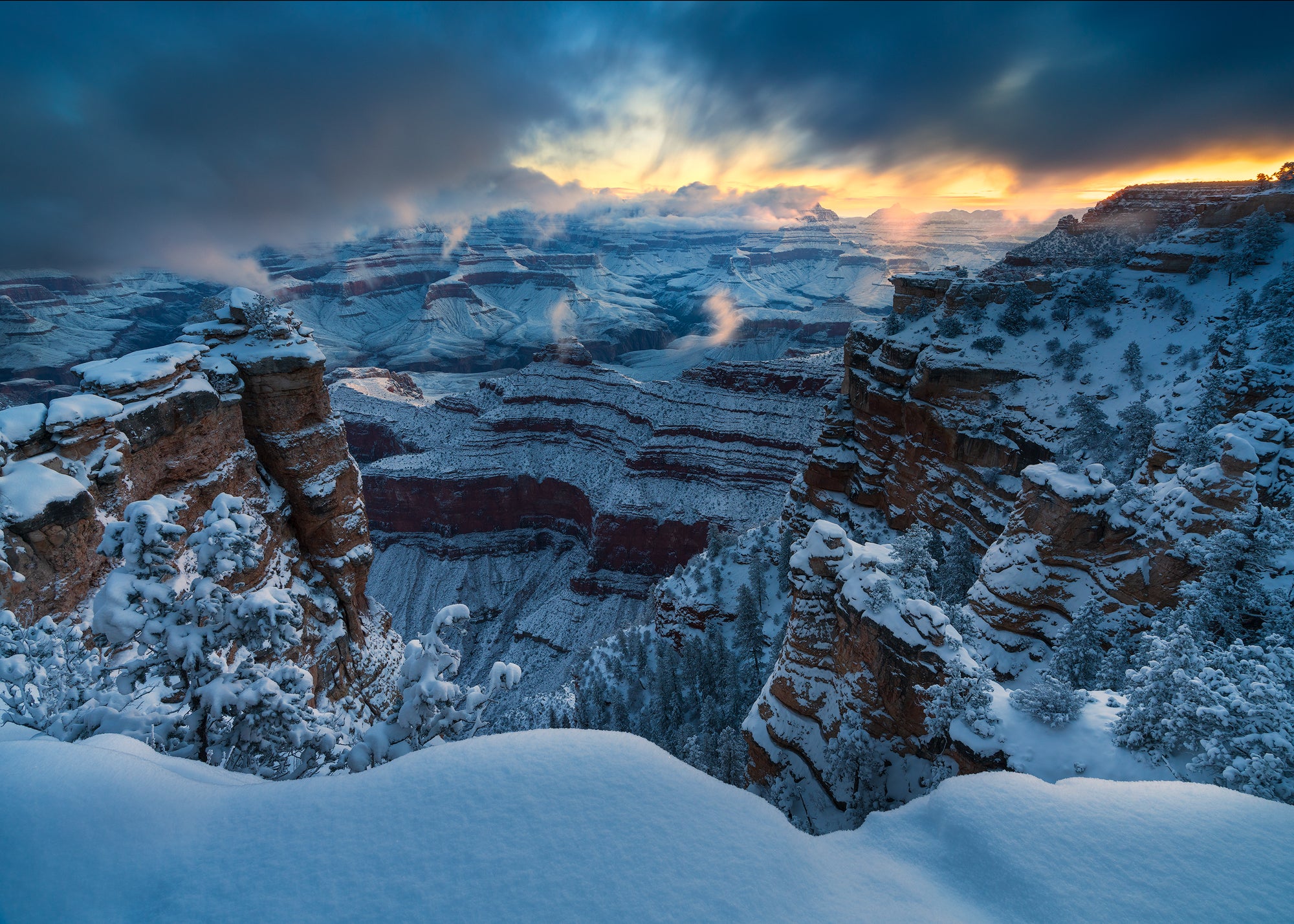
Photo by Adam Schallau. Sony α7R III. Sony 16-35mm f/2.8 G Master. 30-secs., f/11, ISO 100
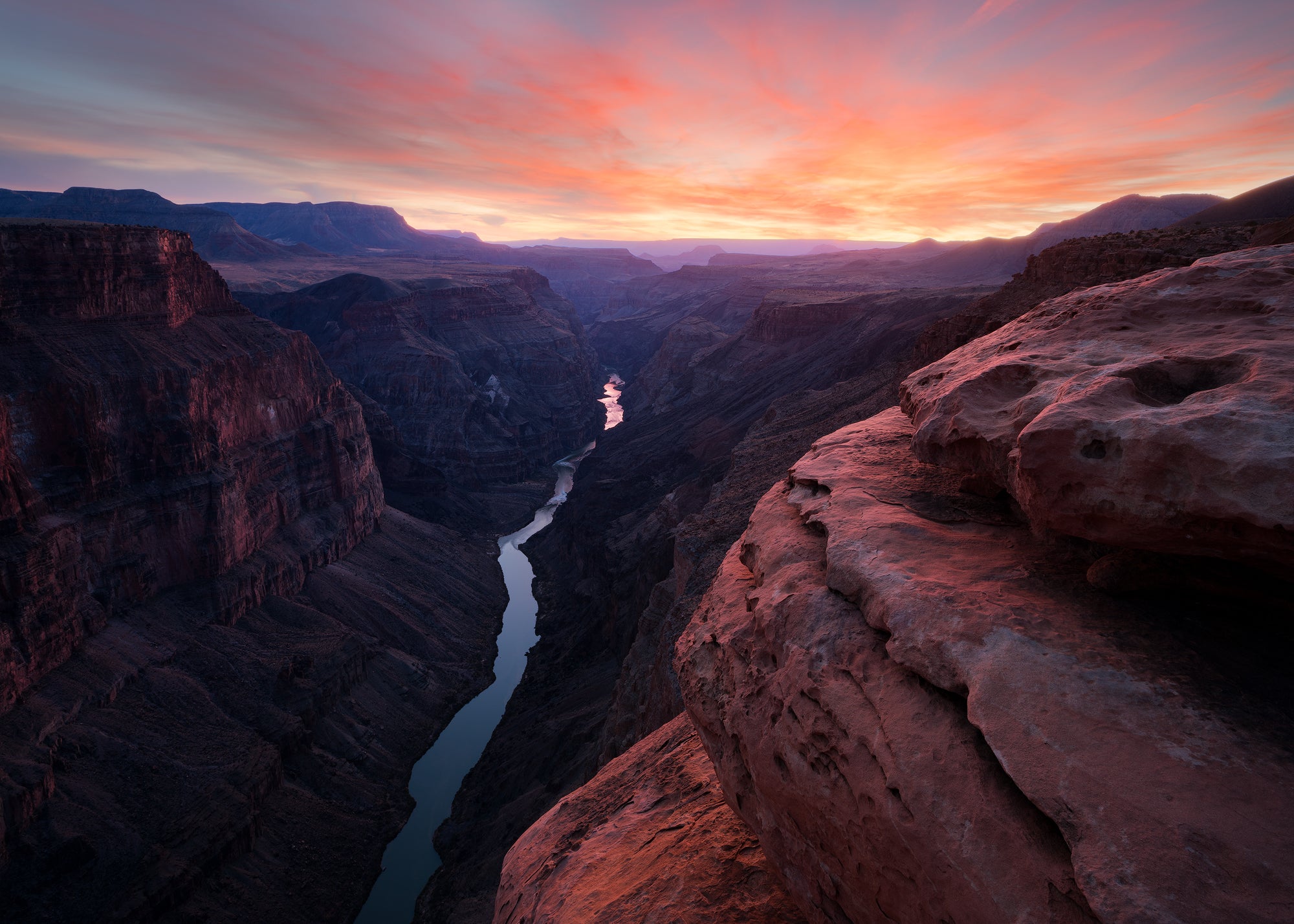
Photo by Adam Schallau. Sony α7R III. Sony 16-35mm f/2.8 G Master. 20-secs., f/16, ISO 100
Sony 24-70mm f/2.8 G Master: This lens pairs well with the 16-35mm f/2.8 GM. It features the same excellent build quality and the fast f/2.8 aperture. I use this lens when photographing people, such as the boatmen on my expeditions through the Grand Canyon. The f/2.8 aperture allows me to photograph the subject while separating them from the background to keep the viewer's focus on them. This lens also has a minimum focusing distance of just 15 inches (38 centimeters), allowing me to work with small details close to the camera.
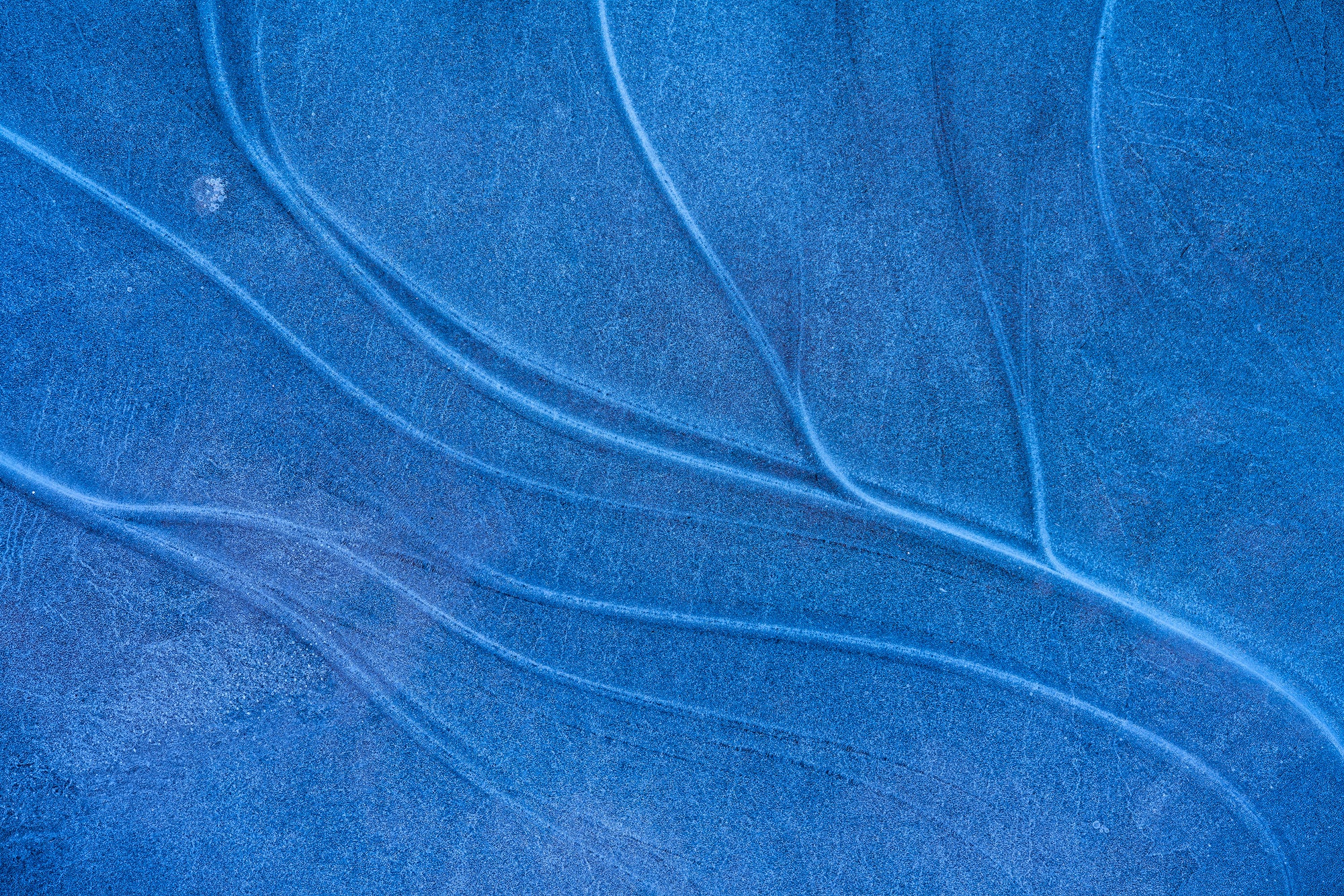
Photo by Adam Schallau. Sony α7R III. Sony 24-70mm f/2.8 G Master. 1/2-secs., f/16, ISO 100
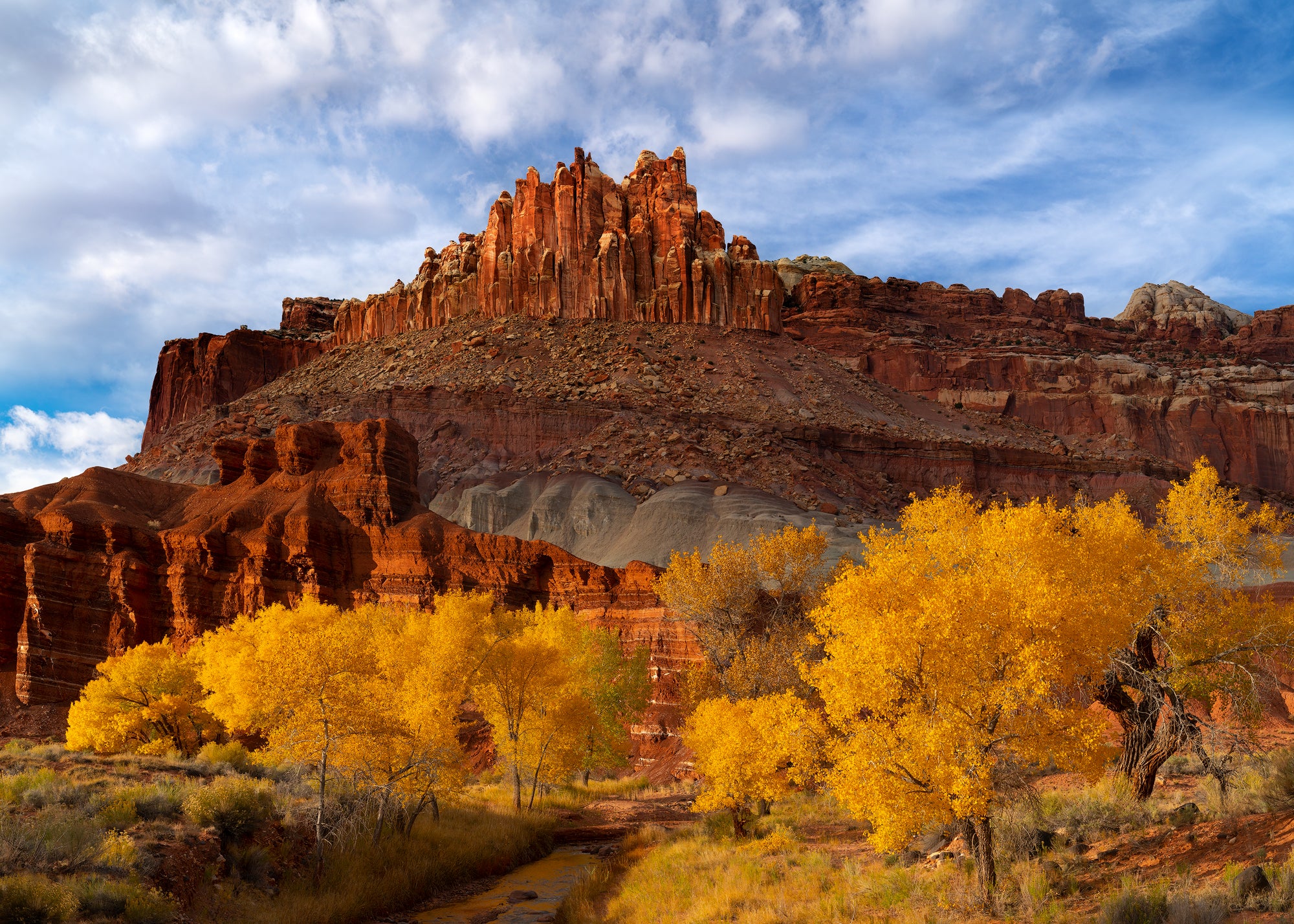
Photo by Adam Schallau. Sony α7R III. Sony 24-70mm f/2.8 G Master. 1/30-secs., f/11, ISO 100
Sony 100-400mm f/4.5-5.6 G Master: Many people don't consider using a long telephoto for landscape photography, but that's exactly how I typically use the 100-400mm lens. I love to compress the landscape and work with layers and light as it fades away through a scene. The image quality from this lens is top-notch, and it's surprisingly small for such a large zoom range.
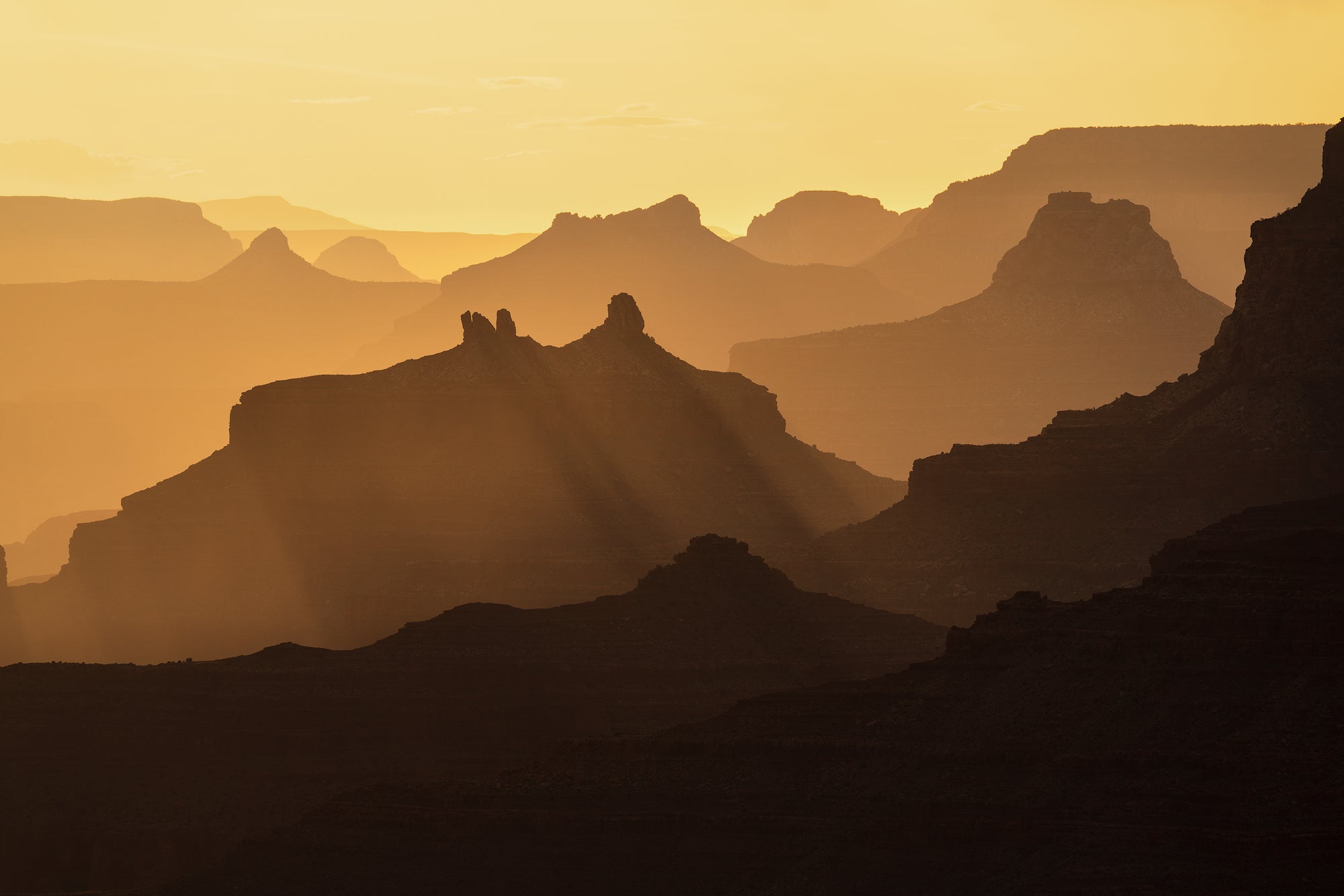
Photo by Adam Schallau. Sony α7R III. Sony 100-400mm f/4.5-5.6 G Master. 1/100-secs., f/11, ISO 100
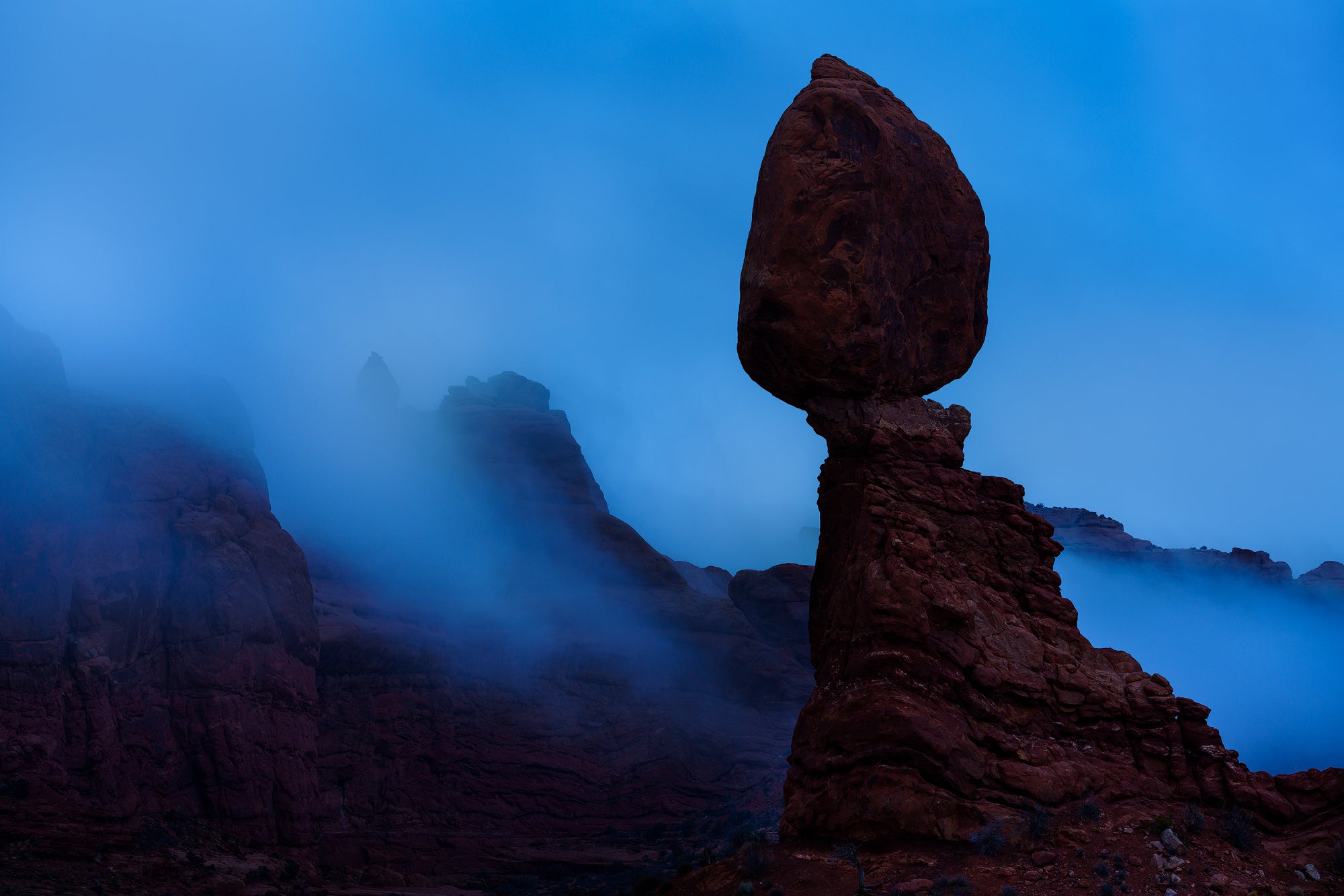
Photo by Adam Schallau. Sony α7R III. Sony 100-400mm f/4.5-5.6 G Master. 1/10-secs., f/10, ISO 100
Sony 24-105mm f/4 G: I just recently got this lens so I don’t have any photos taken with it to share, but I have a feeling this one is going to stay on my camera. It is lightweight while covering a wide range of focal lengths, a great attribute on long hikes, especially those with lots of elevation change. It also means that I don't have to change lenses as often, which is especially beneficial when working in harsh conditions such as blowing sand, rain, or snow.
Accessories
Tripod: My tripod of choice is the TFC-24 paired with a BH-40 ballhead. Both are made in the USA by Really Right Stuff, and both have withstood everything I have thrown at them. The TFC-24 is a very compact 4-section carbon fiber tripod with fantastic vibration dampening qualities. I also have a TVC-24L tripod; this is the big brother to the TFC-24 in that it has longer leg sections for those times when you need to get the camera mounted very high.
Filters: for several years now, I have been using filters made by Breakthrough Photography, specifically their line of X4 filters, including the X4 circular polarizer, X4 Dark circular polarizer, and the X4 UV filter. I tend to keep an X4 circular polarizer on both my 16-35mm f/2.8 GM and 24-105mm f/4 G lenses to protect the front element from blowing sand and dirt. I use an X4 UV for the same reason on the 100-400mm lens.
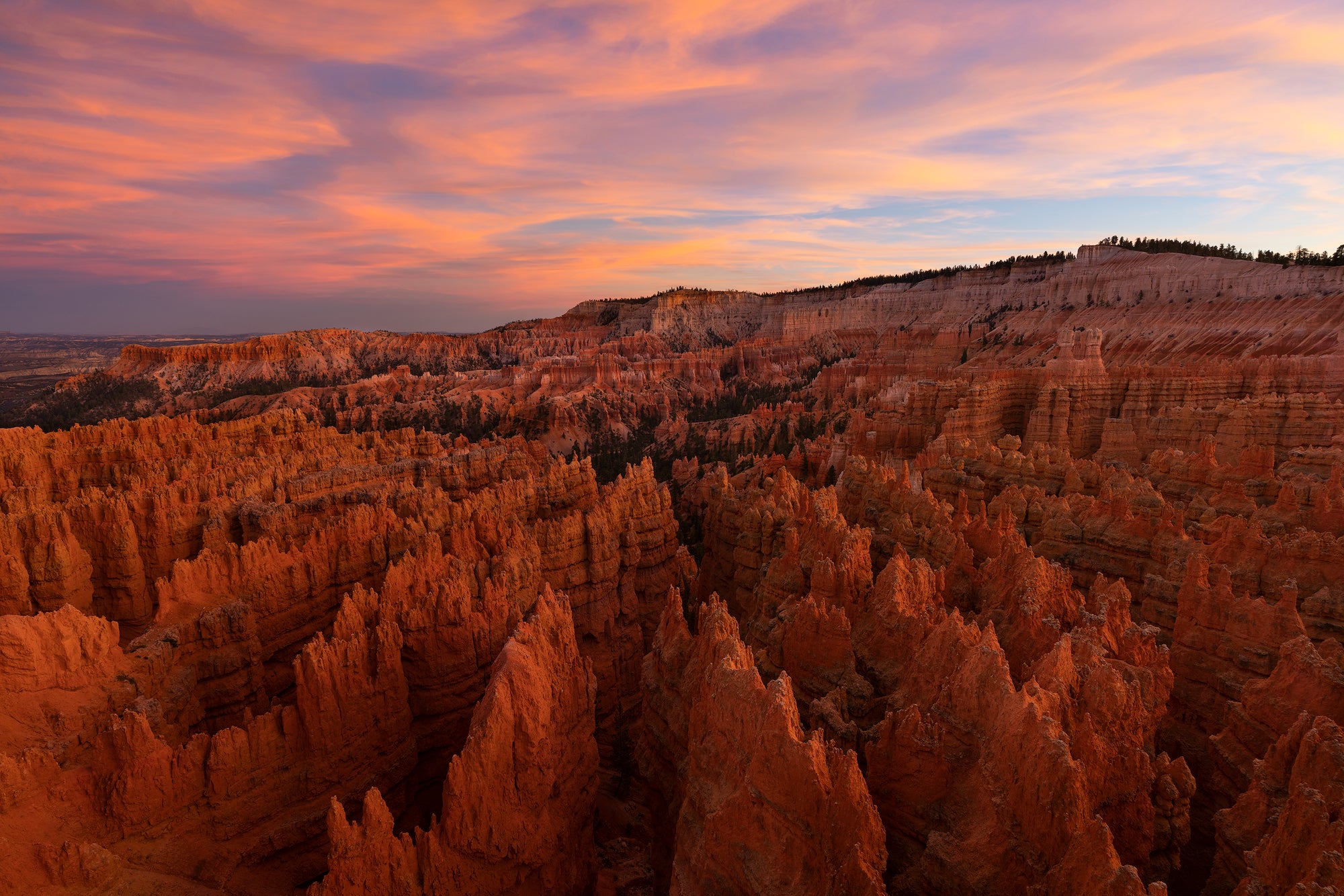
Photo by Adam Schallau. Sony α7R III. Sony 16-35mm f/2.8 G Master. 1/2-secs., f/11, ISO 100
I also use Breakthrough Photography's X100 magnetic filter system combined with their 100x150mm graduated neutral density (GND) filters. I typically have a 2-stop soft-edge GND and a 3-stop reverse GND in my kit. I keep my filters in a MindShift Gear Filter Hive case.
Lightning Trigger: During the Southwest Monsoon season, I will keep Stepping Stone Products LT-IV lightning triggers in my kit. This device mounts into the camera's hot shoe and detects a flash of lightning as it begins and triggers the camera's shutter release.
Batteries and Memory Cards: I keep a pair of spare NP-FZ100 batteries in a ThinkTank battery pouch. I rarely need to use a spare battery, but I feel better having them in my pack. I also keep several extra memory cards with me in a ThinkTank SD Pixel Pocket Rocket memory card wallet.
Sony RMT-P1BT Bluetooth Remote: This remote is great to have any time I want to avoid touching the camera to release the shutter. As a bonus, it's great to have in the winter when I want to leave my hands in my pockets to stay warm!
Camera & Lens Cleaning Kit: I spend a lot of time working in dusty conditions, and keeping the camera and lenses clean can be a challenge. I keep in my pack at all times a cleaning kit consisting of a bulb blower, pre-moistened lens wipes, and a sensor cleaner. My bulb blower of choice is the 'VisibleDust Zee Pro Sensor-Cleaning Bulb Blower' because it has dual filters placed in the back and front of the blower to keep the blower from sucking in and blowing out more dust.
Personal Gear
Headlamps: You can never have too much light, especially when you're on the trail many miles from your car. I have a pair of headlamps in my kit, both made by Black Diamond. My primary headlamp is the Storm, which is capable of producing 350 lumens of white light. It also has red, green, and blue light modes so that you can preserve your night visual acuity when doing astrophotography.
My spare headlamp is the Iota, a tiny device that fits nicely into my First Aid and Survival kit. Its maximum light output is rated to 150 lumens, but that will be more than adequate should my primary headlamp be lost, damaged, or fail for some reason.
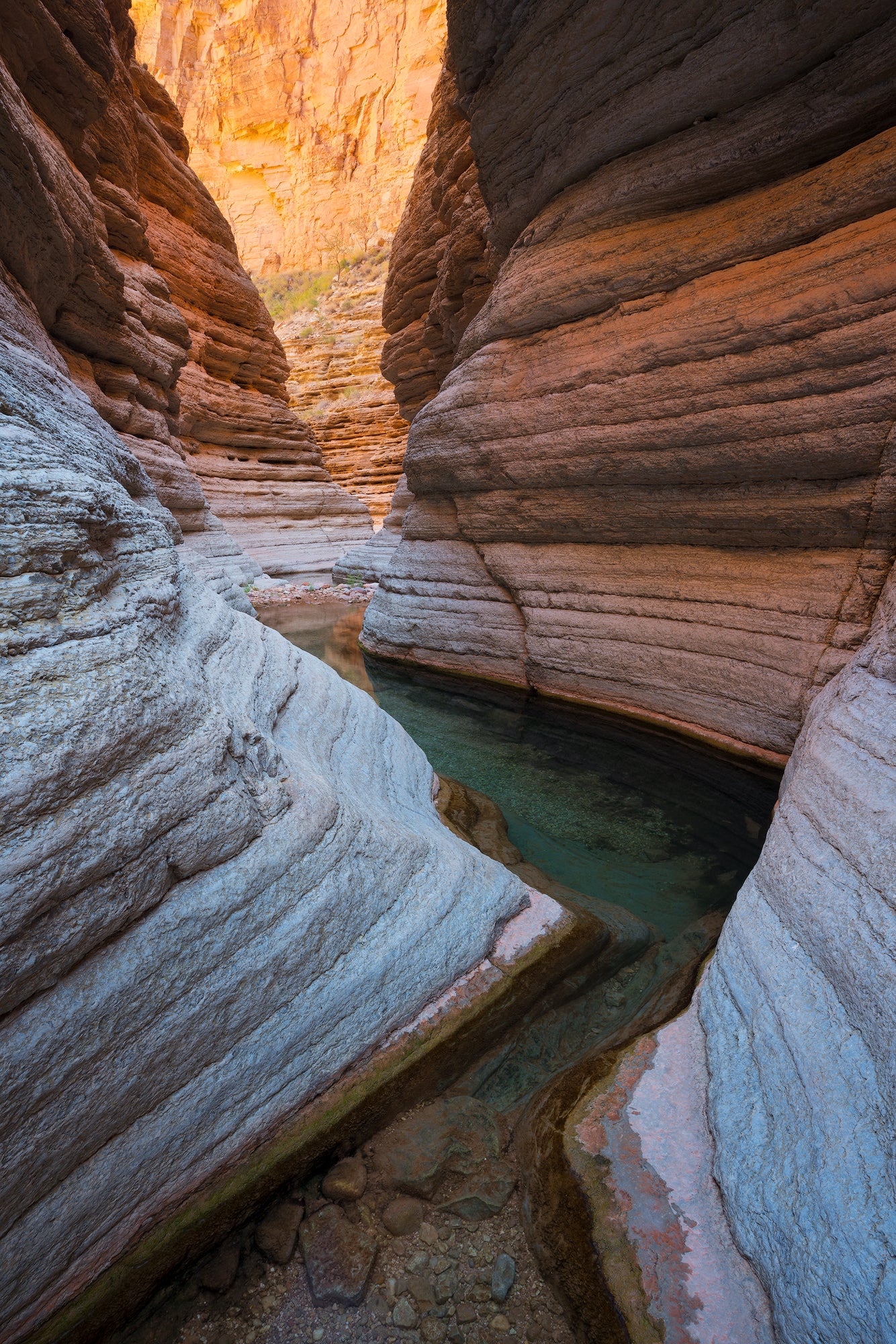
Photo by Adam Schallau. Sony α7R II. Sony 16-35mm f/2.8 G Master. 2.5-secs., f/16, ISO 100
Safety: I spent nearly 14 years on a volunteer Search and Rescue unit and have plenty of stories to share. The interesting stories always begin with someone that was ill-prepared. That said, I keep an Adventure Medical Kits Ultralight/Watertight .7 Medical Kit in my pack along with an S.O.L. Pocket Survival Pak tucked into the medical kit along with a spare headlamp and a multi-tool device.
Personal Care: I throw a couple of energy bars or a bag of nuts into my pack along with a water bottle (and a water filter on long hikes), an extra pair of sunglasses, and a small tube of sunscreen.
The Backpack: I own several photography backpacks and switch between them depending on how much gear I need to carry and how long the hike will be. My everyday pack is the F-Stop Gear Lotus with a Large Pro ICU. This pack has enough room to hold one camera body with three lenses, my filters, plus a small lunch, water, and a jacket.
See more of Adam's work on his Alpha Universe profile. Complete your own public profile for your chance to be featured on AlphaUniverse.com. Learn more HERE.


